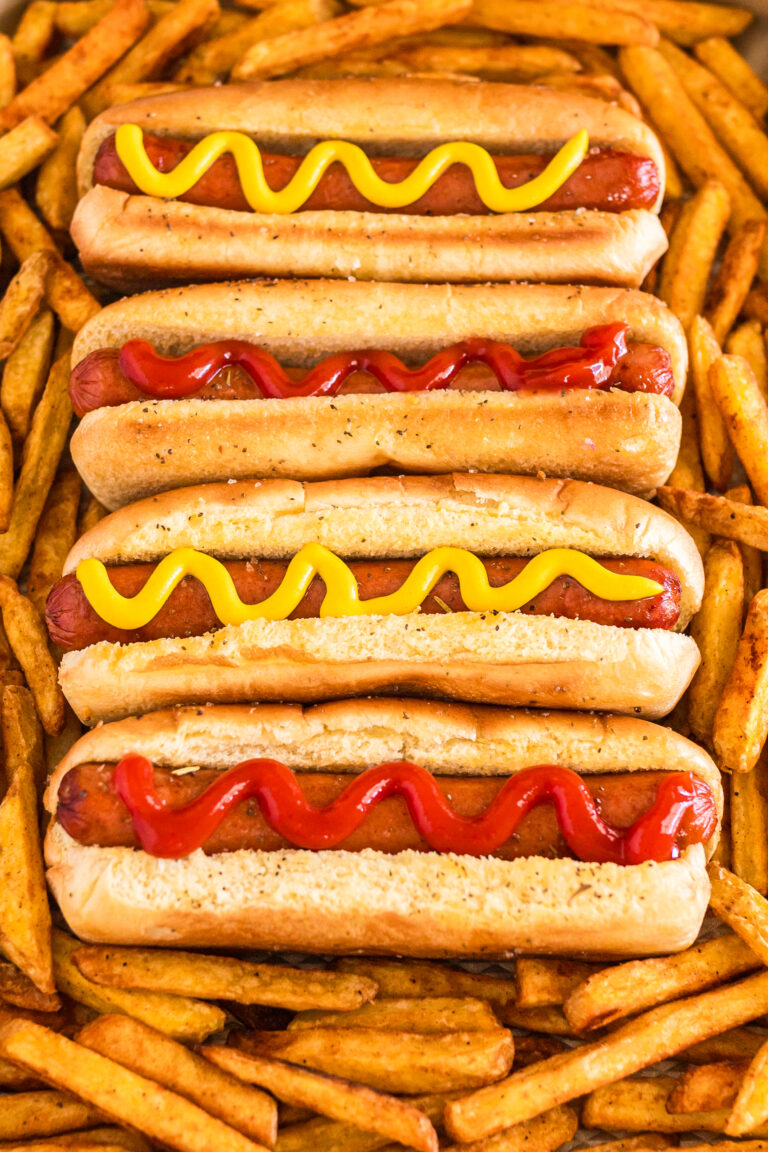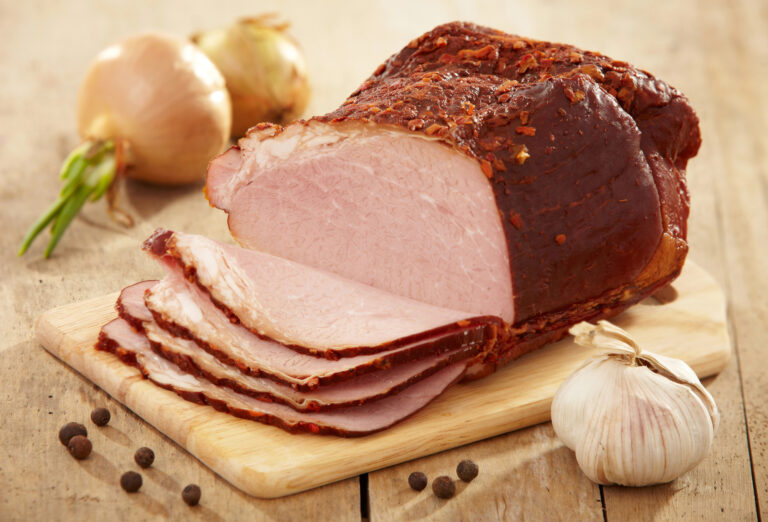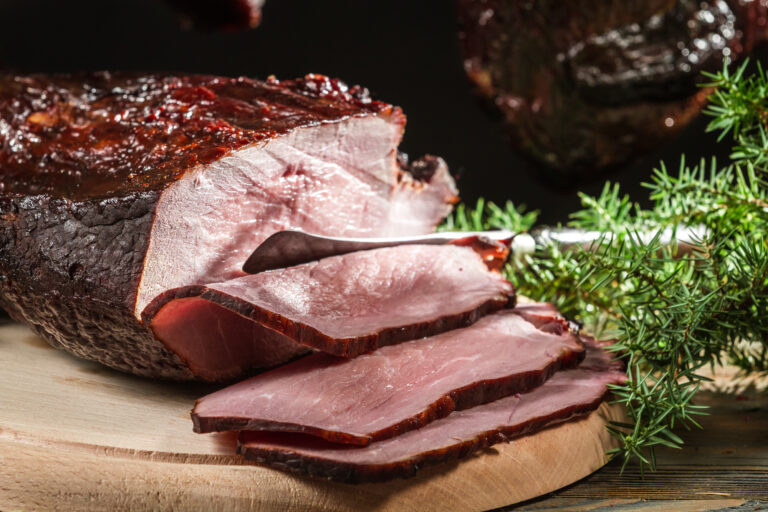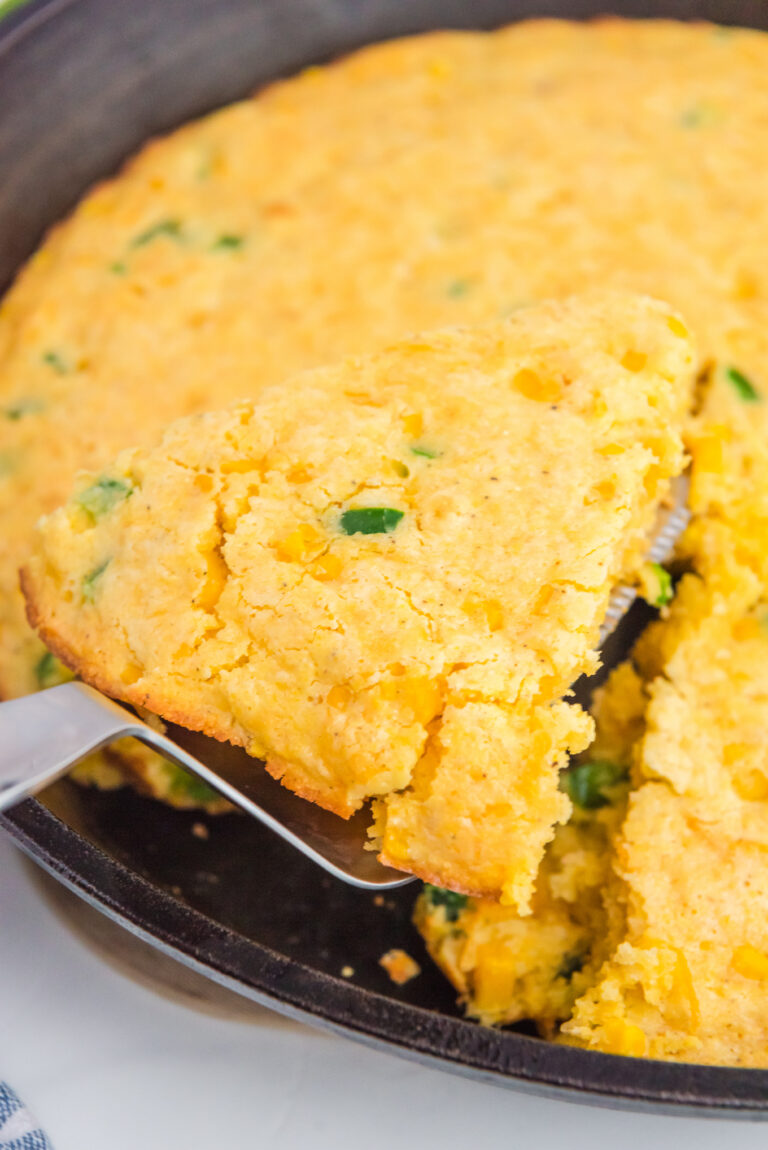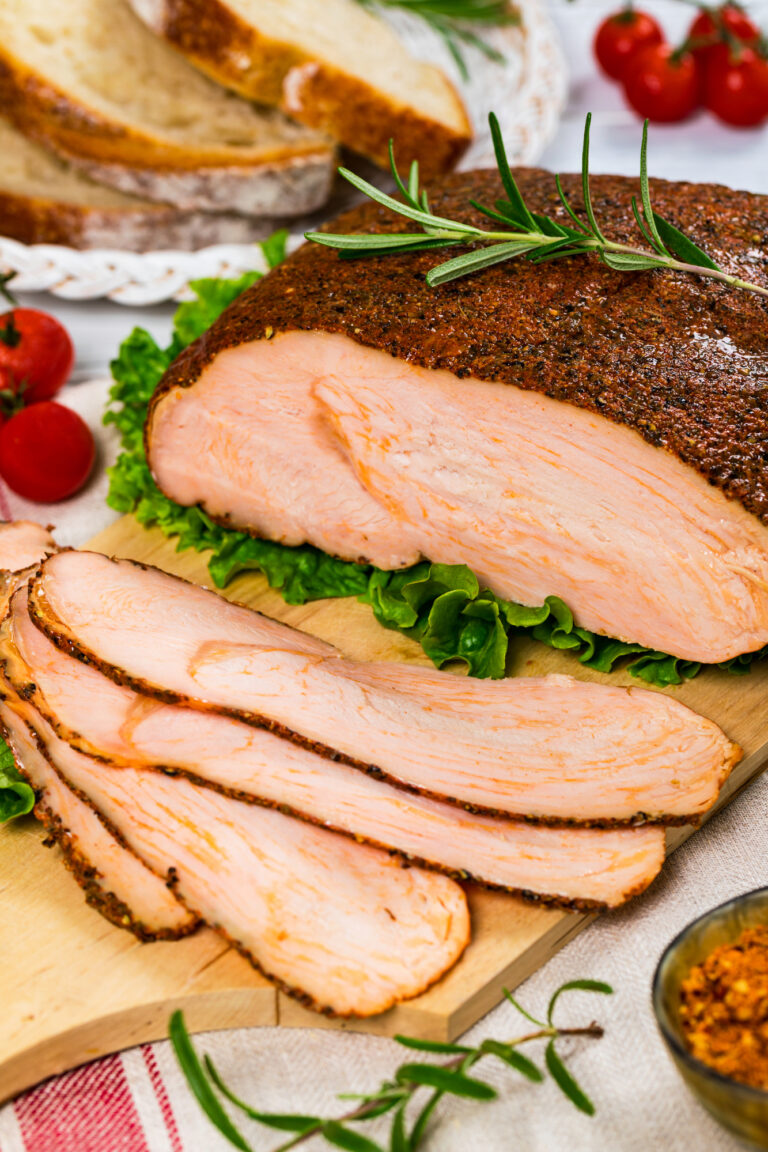Air Fryer Vs. Microwave
Air fryers and microwaves are both essential modern kitchen appliances, each offering distinct cooking methods and benefits.
Here are some of the differences, advantages, and disadvantages. Let’s check out an air fryer vs. microwave.
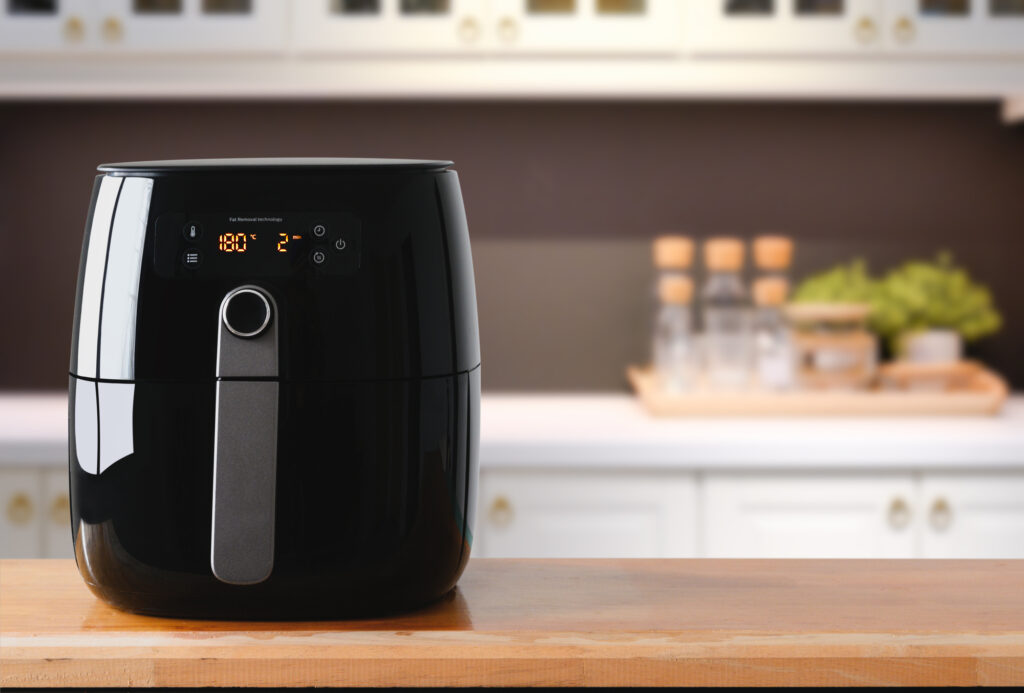
How They Work
- Air Fryers: Utilizing rapid air technology, air fryers circulate hot air around food items, creating a crispy texture with little oil. They function similarly to a convection oven but in a more compact form.
- Microwaves: They heat food using microwave radiation, a form of electromagnetic waves. Water molecules in the food absorb this radiation, heating the food rapidly.
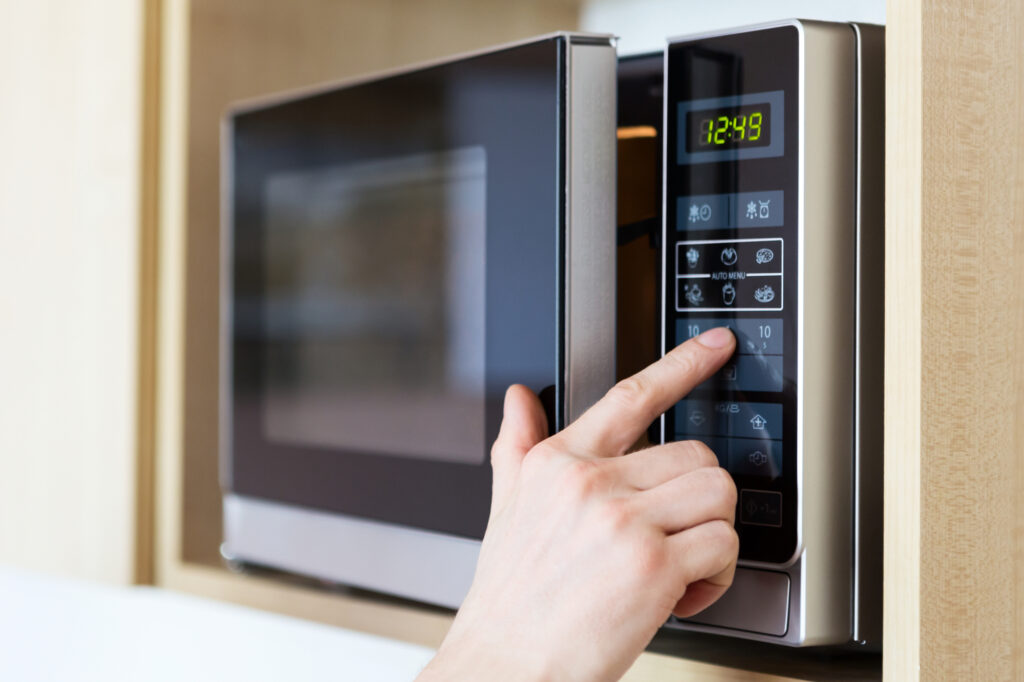
Cooking Time and Energy Efficiency
- Efficiency in Air Fryers: Air fryers heat up quickly and cook food in less time than a standard conventional oven, making them more appealing. They don’t heat up the kitchen like an oven, which is nice in the summertime. They require less power, leading to lower energy costs, as well.
- Microwaves’ Speed: Microwaves are renowned for their ability to cook food items and reheat meals in a fraction of the time it takes traditional ovens, using less energy overall.
Health and Cooking Quality
- Healthier Alternative: Air fryers offer a healthier way to prepare foods like French fries and chicken wings, achieving a deep-fried taste with much less oil. The food turns out super crispy.
- Microwaves and Nutrition: While microwaves can cook food quickly, they may not provide the same crispy texture as air frying. However, they preserve nutrients well due to shorter cooking times. The microwave is great for reheating foods.
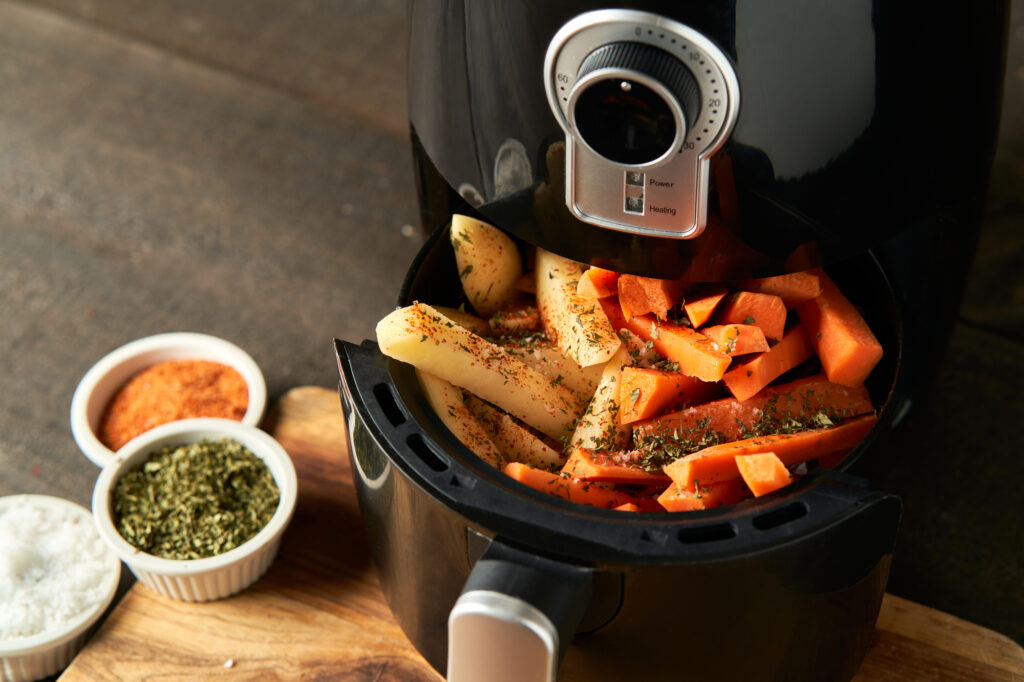
Versatility and Capacity
- Cooking Functions: Modern air fryers come with various cooking functions, including baking and grilling. The best air fryers have a large capacity and removable parts for ease of use.
- Microwave Functions: Convection microwave ovens combine the quick heating of microwaves with convection heating, offering more cooking options than a regular microwave.
Cost and Space Considerations
- Kitchen Space: air fryers, especially countertop air fryer models, require more space than microwaves. A microwave or a convection microwave oven might be a better option for small kitchens. Microwaves can be placed above a stovetop or cabinet to save space.
- Investment: Initially, air fryers can be more expensive than standard microwaves, but they may save on energy bills in the long run.
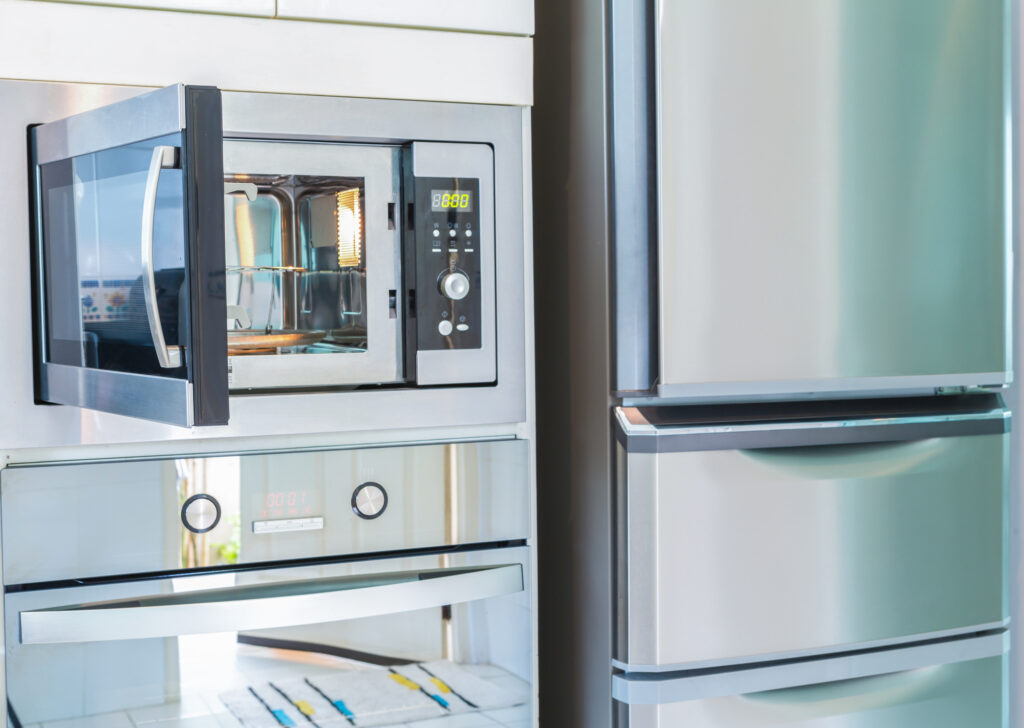
Food Quality
- End Result with Air Frying: Air frying gives a consistent crispy texture to foods, ideal for those seeking a healthier cooking option without sacrificing taste.
- Microwave Cooking: Microwave air fryers combine the rapid cooking of microwaves with the crisping ability of an air fryer but might not always achieve the same results as an air fryer.
Microwave Air Fryer Combo
Advantages
- Multifunctionality: Saves space and simplifies your kitchen by combining two popular appliances into one. You can air fry, microwave, reheat, defrost, and even cook some basic dishes like pizzas and casseroles.
- Healthy and versatile: Air frying allows you to cook delicious crispy food without using as much oil compared to deep frying, making it a healthier option. Additionally, the microwave function offers quick and convenient meal preparation.
Disadvantages
- Limited capacity: Microwave air fryer combos typically have smaller capacities than dedicated air fryers or microwaves, which might not be ideal for large families or frequent cooking.
- Cooking limitations: While versatile, these combos may not perform as well as dedicated appliances for specific tasks. For example, air frying might not achieve the same level of crispness as a larger air fryer, and microwave cooking might not be as even as a traditional microwave.
Advantages of Air Fryers
- Healthier Cooking: Air fryers use up to 80% less oil than traditional frying methods, making meals lower in fat and calories.
- Versatility and Convenience: Capable of frying, grilling, roasting, and baking, air fryers are multi-purpose appliances that cook food quickly and efficiently.
Disadvantages of Air Fryers
- Limited Capacity: Air fryers typically have smaller cooking spaces, making them less suitable for large families or for preparing big meals.
- Noise and Counter Space: Air fryers can be noisy during operation, and their bulky size can take up significant counter space in smaller kitchens.
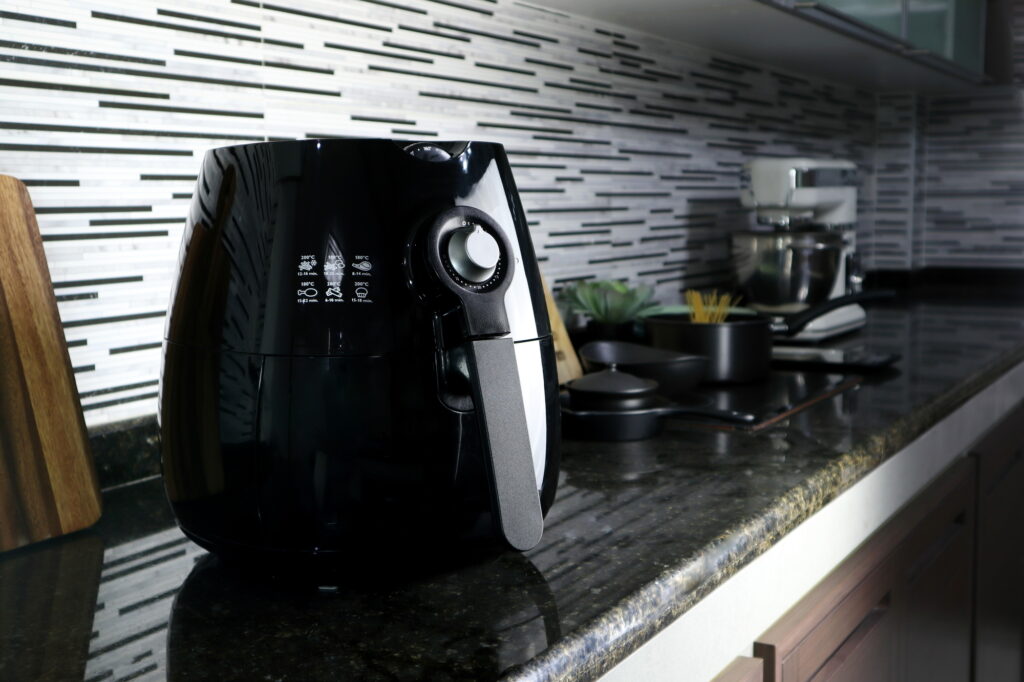
Advantages of Microwaves
- Speed and Convenience: Microwaves cook and reheat food faster than traditional ovens, making them perfect for quick meals and busy lifestyles.
- Versatility: Microwaves can defrost, reheat, and cook various foods and are especially useful for heating liquids like soups and beverages.
Disadvantages of Microwaves
- Uneven Heating: Microwaves can heat food unevenly, leading to hot spots and cold areas, which may require stirring or turning the food during cooking.
- Material Restrictions: Certain materials, like metal or some plastics, cannot be used in microwaves, requiring specific microwave-safe cookware.
Air Fryer vs. Microwave
Ultimately, choosing an air fryer vs microwave depends on your individual needs and preferences. Consider your cooking frequency, space constraints, and desired features before making a decision.
The best dill air fryer red potatoes from The Typical Mom is a great place to start with an air fryer recipe.
Looking for The Ultimate Guide to Cooking Fresh Polish Sausage? This is it.
